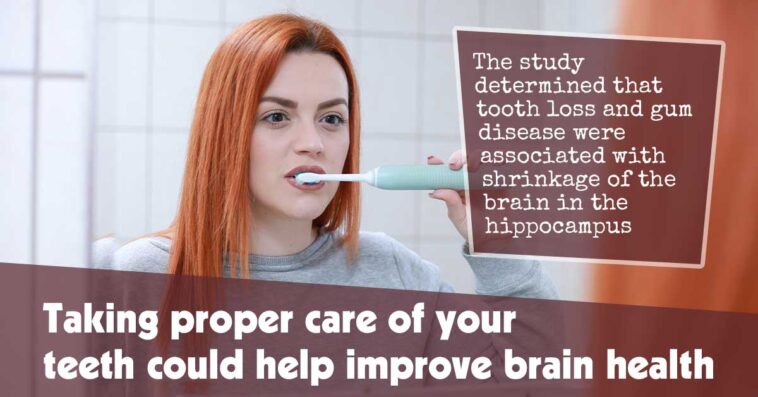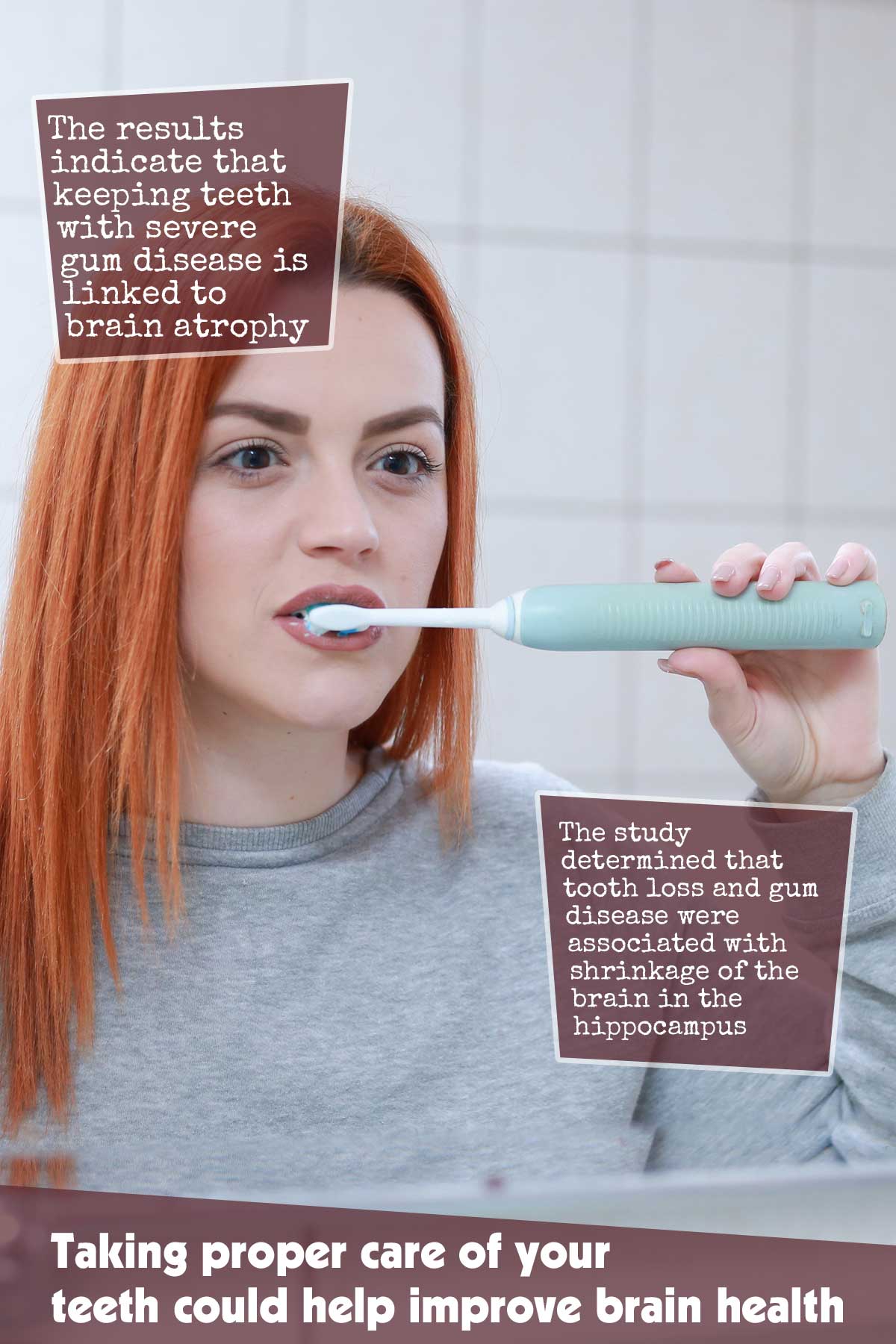According to research, looking after your teeth properly could be associated with improved brain health. The study determined that tooth loss and gum disease were associated with shrinkage of the brain in the hippocampus, a brain area involved in memory and Alzheimer’s.1✅ JOURNAL REFERENCE
DOI: 10.1212/WNL.0000000000207579
The research doesn’t prove that tooth loss or gum disease results in Alzheimer’s; it just shows a connection.
Gum disease and tooth loss, which is tissue inflammation surrounding the teeth that can contribute to gum shrinkage and teeth loosening, are quite common, so assessing a potential relationship with dementia is extremely important.
The study discovered that these conditions could be involved in the health of the region of the brain that controls memory and thinking, which gives us one more reason to care better for our teeth.
The study consisted of 172 individuals aged 67 on average without memory problems at the start of the study.
Memory tests and dental exams were taken at the start of the study. Brain scans were also taken to measure hippocampus volume at the start of the study as well as again 4 years later.
Each individual’s number of teeth was counted and gum disease was checked for by examining periodontal probing depth, a gum tissue measurement. Healthy measurements are from 1 to 3 mm.
Mild gum disease entails probing depths of 3 or 4 mm in some areas, and severe gum disease entails probing depths of 5 or 6 mm in some areas in addition to more bone loss which can result in teeth becoming loose and sooner or later falling out.
It was observed that the amount of gum disease and number of teeth was associated with changes in the left hippocampus brain region.
Mild gum disease with fewer teeth was linked to a quicker rate of brain shrinkage in the left hippocampus.
Severe gum disease with more teeth was however linked to a quicker brain shrinkage rate in the same brain region.
After age was adjusted for, it was found that for individuals who had mild gum disease, the brain shrinkage increase as a result of one less tooth was equal to almost 1 year of brain aging. On the other hand, for individuals who had severe gum disease the brain shrinkage increase due to 1 more tooth was equal to 1.3 years of brain aging.
The study results point out the importance of maintaining tooth health and not just keeping the teeth. The results indicate that keeping teeth with severe gum disease is linked to brain atrophy. Managing gum disease progression by way of visiting the dentist regularly is essential, and teeth with severe gum disease might need to be taken out and replaced with suitable prosthetic devices.




